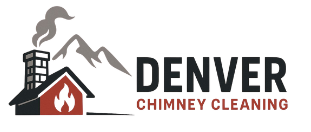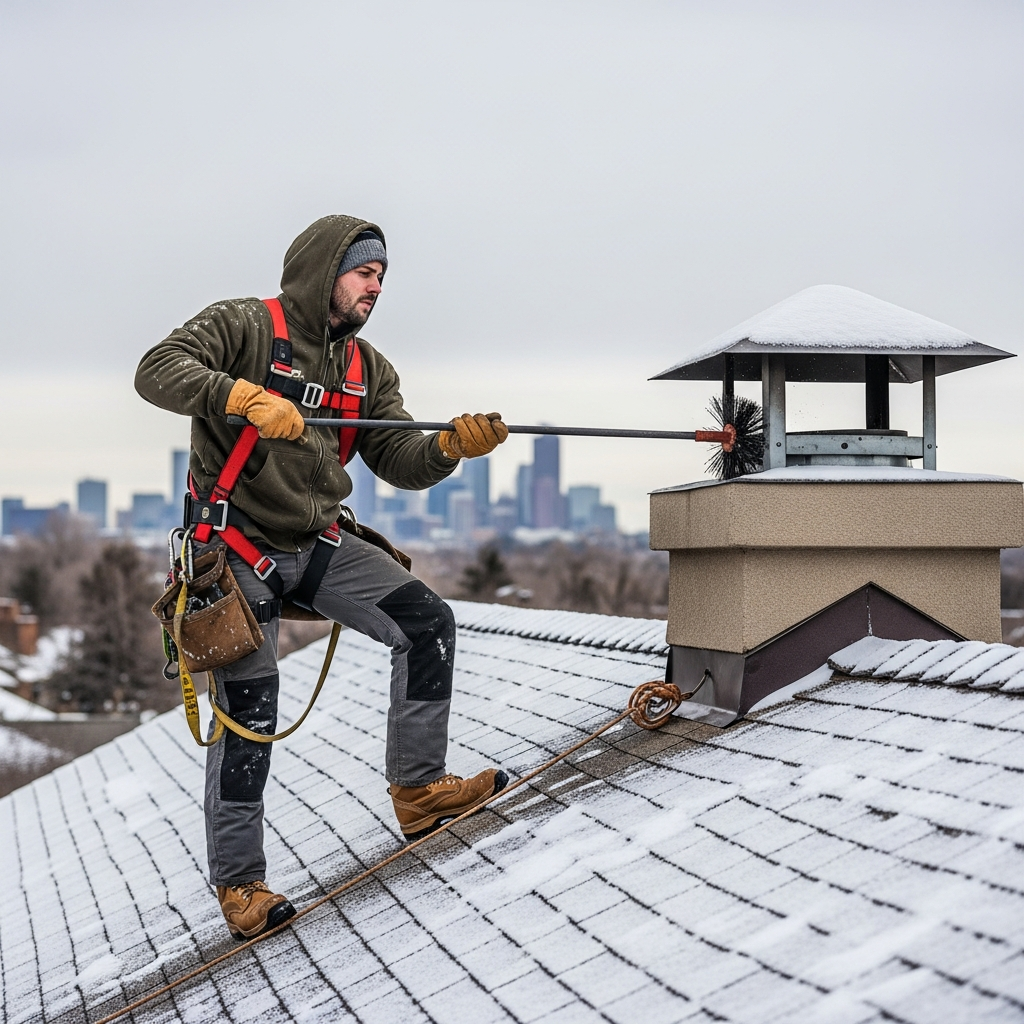How to Choose the Right Chimney Professionals in Denver
With crisp winter evenings and bright, sunny days, Denver is a city where fireplaces feel at home. But selecting the right team to service your chimney can feel overwhelming when every company promises the same thing. Instead of focusing on slogans, zero in on qualities that actually matter: training, safety, documentation, communication, and local expertise. Early in your search, remind yourself why homeowners value periodic chimney cleaning: it protects your household, preserves your system, and makes fires easier to enjoy.
Choosing well is about alignment. The best provider for your neighbor may not be the best for you if your systems and expectations differ. By clarifying your needs—masonry vs. factory-built, open fireplace vs. insert, wood vs. gas—you can ask targeted questions and judge answers confidently.
Start with Credentials and Experience
Credentials signal commitment to best practices. Look for technicians who pursue ongoing education and who can explain standards-based procedures in plain language. Ask how long they’ve served the Denver area and what types of systems they see most often. A team familiar with historic brick chimneys in older neighborhoods will approach challenges differently than one focused on newer factory-built installations in suburban developments.
Experience also shows in the quality of recommendations. A seasoned technician can distinguish between cosmetic blemishes and early-stage damage that needs attention. They’ll also understand how altitude, weather, and neighborhood wind patterns interact with tall chimneys and rooflines.
Safety and Protection of Your Home
Top local companies demonstrate safety long before they step onto your roof. They describe their containment methods, use high-filtration vacuums, and protect floors, mantels, and furniture. They have a plan for steep roofs, icy conditions, and multi-level access. They carry appropriate safety gear, and they know when the weather requires rescheduling exterior tasks.
Indoors, you should see a tidy setup, with tools organized and pathways protected. Clear communication about pets, breakables, and electrical access points signals attention to detail. These habits keep your home clean and reduce stress during the visit.
Clarity of Scope and Transparent Communication
A strong indicator of quality is how well a company explains what is included in a standard visit. Do they describe the cleaning method, which components will be inspected, and how findings will be documented? Do they offer before-and-after photos and clear next steps if issues are discovered? Clarity builds trust.
If your home has multiple appliances—an open fireplace on the main floor and a stove in the basement—ask whether both can be serviced in one appointment and how the team will prevent cross-contamination. The best providers can articulate a plan that fits your schedule and your home’s layout.
Documentation You Can Keep
Photographs, written notes, and recommendations form a valuable record for future decisions. Top companies deliver a clear report with labeled images, observations in plain language, and prioritized suggestions. This record helps you schedule follow-up work at the right time and supports real estate transactions and insurance discussions.
Ask how reports are delivered and stored. Digital delivery with cloud backup is common and convenient. A clear archive shows system changes over time and helps you understand the cadence of maintenance for each appliance.
Local Knowledge Matters in the Mile High City
Denver’s elevation and weather patterns create specific challenges. Strong winds can push debris into caps. Hail seasons can dent screens and crowns. Rapid temperature changes can influence draft. Companies rooted in the area know these rhythms and adapt their advice accordingly. They may recommend certain cap designs for foothill neighborhoods or specific scheduling strategies to beat the autumn rush.
Local teams also understand community expectations and permitting practices. If exterior work is needed—like crown improvements or flashing adjustments—they can coordinate with roofers or masons familiar with Denver materials and methods.
Reading Reviews with a Critical Eye
Online feedback can be helpful, but read reviews for substance, not star counts alone. Look for descriptions of how the team protected the home, communicated findings, and handled surprises. Pay attention to whether the reviewer mentions follow-up performance—did the fireplace draft better afterward? Were recommended improvements explained clearly and completed on schedule?
Be cautious of reviews that only mention speed or surface cleanliness without discussing safety and documentation. The best experiences are tidy and thorough, with clear communication and a useful report.
Questions to Ask Before You Book
Prepare a concise list. What does a standard appointment include? Will you receive photos and written recommendations? How does the team handle steep or icy roofs? What tools and filtration do they use indoors? Do they have experience with your specific appliance and liner type? Clear answers to these questions reveal professionalism and readiness.
If you have a unique situation—such as a particularly tall masonry chimney, a historic mantle, or a wood stove with multiple elbows in the connector—ask for examples of similar jobs they’ve performed. Specifics matter.
Red Flags to Watch For
Vague descriptions, lack of documentation, and dismissive attitudes toward questions are all warning signs. If a company cannot explain its containment setup or the basics of draft and residue formation, keep looking. You should never feel pressured. The best providers earn trust with information and transparency, not with urgency or one-size-fits-all claims.
Another red flag is a reluctance to coordinate with other trades when necessary. Chimney systems interact with roofing, framing, and exterior sealing; collaborative professionals respect those interfaces and plan accordingly.
Comparing Companies Fairly
To compare fairly, align scopes. Make sure each provider is offering the same level of cleaning, inspection, and documentation. Ask about their approach to smoke chamber transitions, connector pipes for stoves, and exterior components like caps and crowns. Request example reports so you can see how findings are presented.
Midway through your research, return to your core goal: reliable, safe firelight without hassles. Many Denver homeowners stay loyal to companies that deliver consistent chimney cleaning, thorough inspections, and clear planning for future maintenance. Consistency brings peace of mind.
Preparing for Your First Appointment
Once you’ve chosen a provider, set yourself up for success. Avoid burning for 24 hours before the visit, clear a pathway to the hearth, and secure pets. Share any recent observations in writing—unusual odors, draft hiccups, or visible residue. If your roof is steep, tell the team in advance and describe parking and ladder staging options.
During the visit, follow along. Ask to see photos, learn how your damper operates, and request tips tailored to your home. These conversations build your knowledge and help you make better decisions later.
Special Considerations for Different Systems
Open masonry fireplaces often benefit from smoke chamber smoothing and well-fitted caps. Factory-built units require intact, listed components and correct clearances; replacement parts must match the original listing. Wood stoves need attention to connector pipes and elbows, where flaky soot can accumulate quickly. Gas systems require clear terminations and clean internals to maintain proper combustion and venting.
If you’re unsure which system you have, your technician can identify it during the initial visit and explain maintenance differences. Knowing the type clarifies which improvements will have the biggest impact on performance.
Long-Term Maintenance Planning
The best companies help you plan across seasons. They might suggest scheduling inspections in late spring or summer to beat the autumn rush, with any exterior work handled during warm, dry weather. They’ll also track patterns—such as how your flue responds to cold snaps or how often caps collect debris—so you can adapt your schedule accordingly.
Keep a folder of reports and photos. Over time, you’ll see trends that inform decisions about upgrades like a new cap design, crown repairs, or even relining for longevity and consistent draft.
Frequently Asked Questions
Q: How do I verify that a company will protect my home?
A: Ask them to describe their containment setup, filtration, and floor protection. Request a brief rundown of their indoor procedures and look for photos of actual job sites.
Q: What if my chimney is very tall or my roof is steep?
A: Discuss access ahead of time. Professional teams will explain ladder strategies, safety gear, and weather policies. In some cases, they may plan interior-first work if exterior conditions are unsafe.
Q: Do gas fireplaces need regular attention?
A: Yes. While gas produces lighter residues than wood, vents and terminals still require periodic cleaning and inspection to maintain proper combustion and airflow.
Q: How should I read online reviews?
A: Look for specific details about protection, communication, and documentation. Useful reviews describe the process and outcomes, not just speed or friendliness.
Q: What documents should I receive after the visit?
A: Expect photos, a written summary, and prioritized recommendations. Keep these records to guide future maintenance and to support real estate and insurance needs.
Move Forward with Confidence
Choosing the right partner makes hearth season simple. With a company that communicates clearly, protects your home, and delivers thorough documentation, you can settle in and enjoy every fire. When you’re ready to begin, schedule professional chimney cleaning and set your Denver home up for a warm, safe winter.




